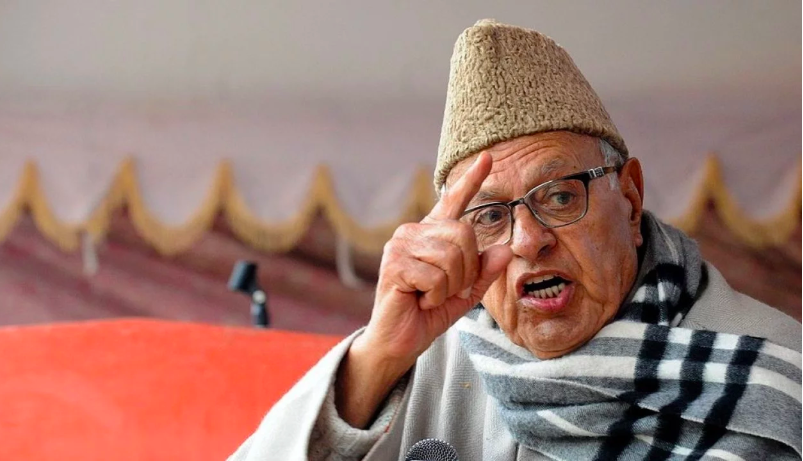Did Amit Shah Mislead Lok Sabha on Farooq Abdullah’s Detention?

The Supreme Court was told on August 16 that National Conference leader and member of Lok Sabha, Farooq Abdullah, had been detained and was not allowed to move freely. This came during the hearing of a petition moved by MDMK chief Vaiko seeking a direction to the Union Government and the Jammu and Kashmir administration to produce Abdullah before the Court. Farooq Abdullah was said to have been detained, along with other political leaders, as the Narendra Modi government had moved to abrogate Article 370 of the Constitution granting special status to Jammu and Kashmir in early August. He did not attend even the Monsoon session of Lok Sabha.
When some members had expressed concern at the National Conference leader's absence in the House, Union Home Minister Amit Shah had told Lok Sabha on August 6 that the veteran leader was perfectly fine and was staying away out at his own free will. He was neither under house arrest nor was he detained. “I am saying it for the fourth time, and I have the patience to say it for the tenth time; Farooq Abdullah has neither been detained nor arrested,” the Home Minister had asserted.
If what the Supreme Court was told on September 16 is true, Shah’s August 6 assertion on Farooq Abdullah in Lok Sabha amounts to gross contempt of the House, mainly on two counts: for willfully and illegally preventing a member from attending the House in session and for misleading the House.
A sad thing, however, is that the Opposition has not yet shown the signs of recovery from the jolt it had received with Narendra Modi’s coming to power in May 2014. There were several occasions when it failed to raise the issue either in the courts or in Parliament.
For instance, Narendra Modi was first sworn in as Prime Minister on May 26, 2014. The same day he got twice retired bureaucrat Nripendra Misra appointed as Principal Secretary to Prime Minister. Misra was not eligible for any appointment in the government on that day. But the then President Pranab Mukherjee obliged Modi and made the appointment in flagrant violation of the existing provisions of the law. The next day, the Modi government drafted an Ordinance. President Mukherjee again obliged Modi and promulgated the Ordinance, removing the illegality in the appointment of Misra, retrospectively.
It was not challenged in a court of law and the legality of the manner of appointment of Misra could not be tested. The Opposition was perhaps too stunned by Modi’s unexpected massive win. During the first session of Parliament, Modi went to Arunachal Pradesh and announced at a public rally a Rs 58,000 crore package for development of the North-East. Announcing a major decision outside when Parliament is in session clearly amounts to contempt of the House. In this manner, the defiance of rules and procedures by Modi went on and the Opposition continued to be afflicted with inertia. There is little sign of it recovering.
ND Sharma, is a senior journalist and patron of eNewsroom. Views are personal.
Get the latest reports & analysis with people's perspective on Protests, movements & deep analytical videos, discussions of the current affairs in your Telegram app. Subscribe to NewsClick's Telegram channel & get Real-Time updates on stories, as they get published on our website.
























